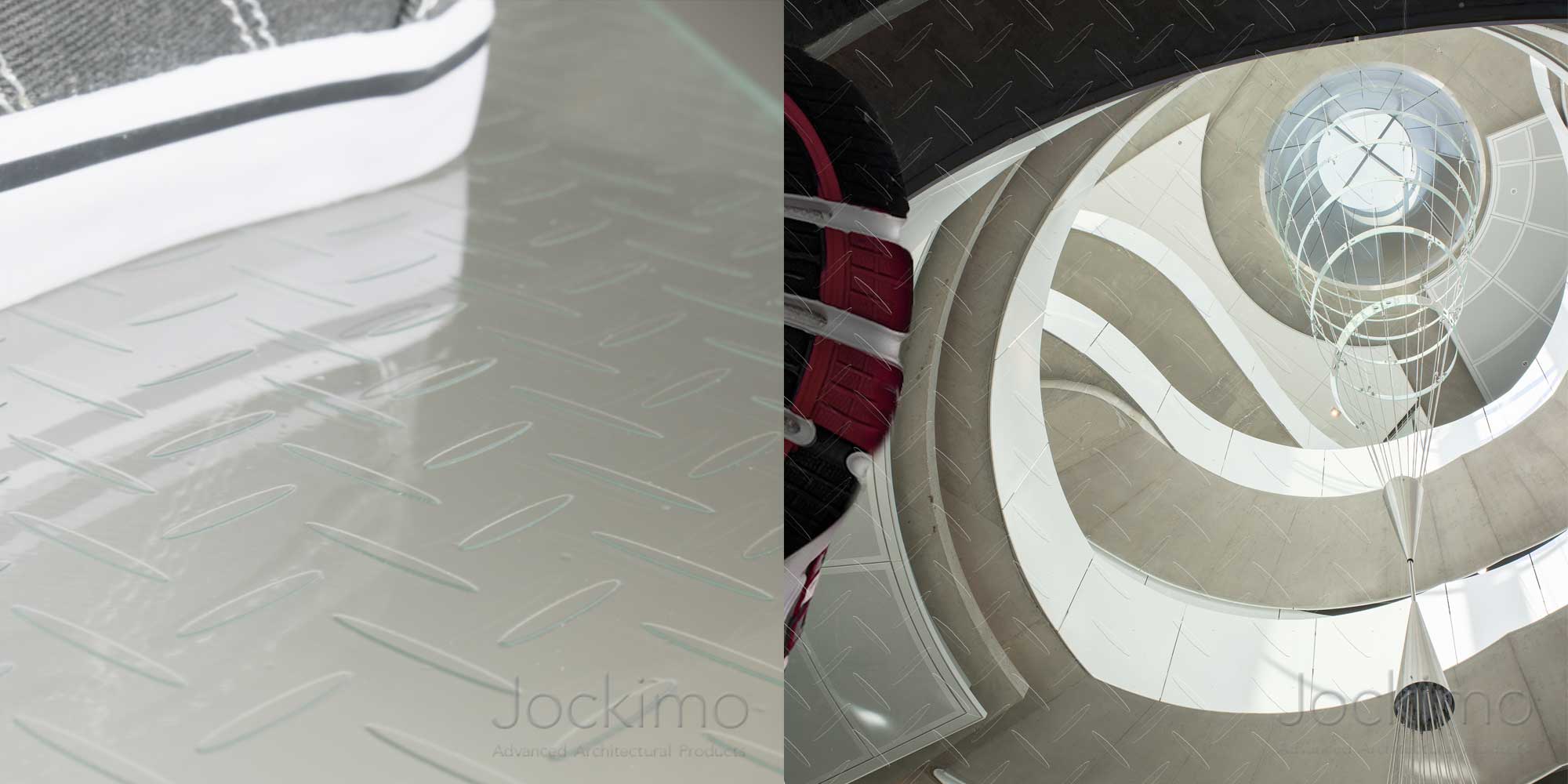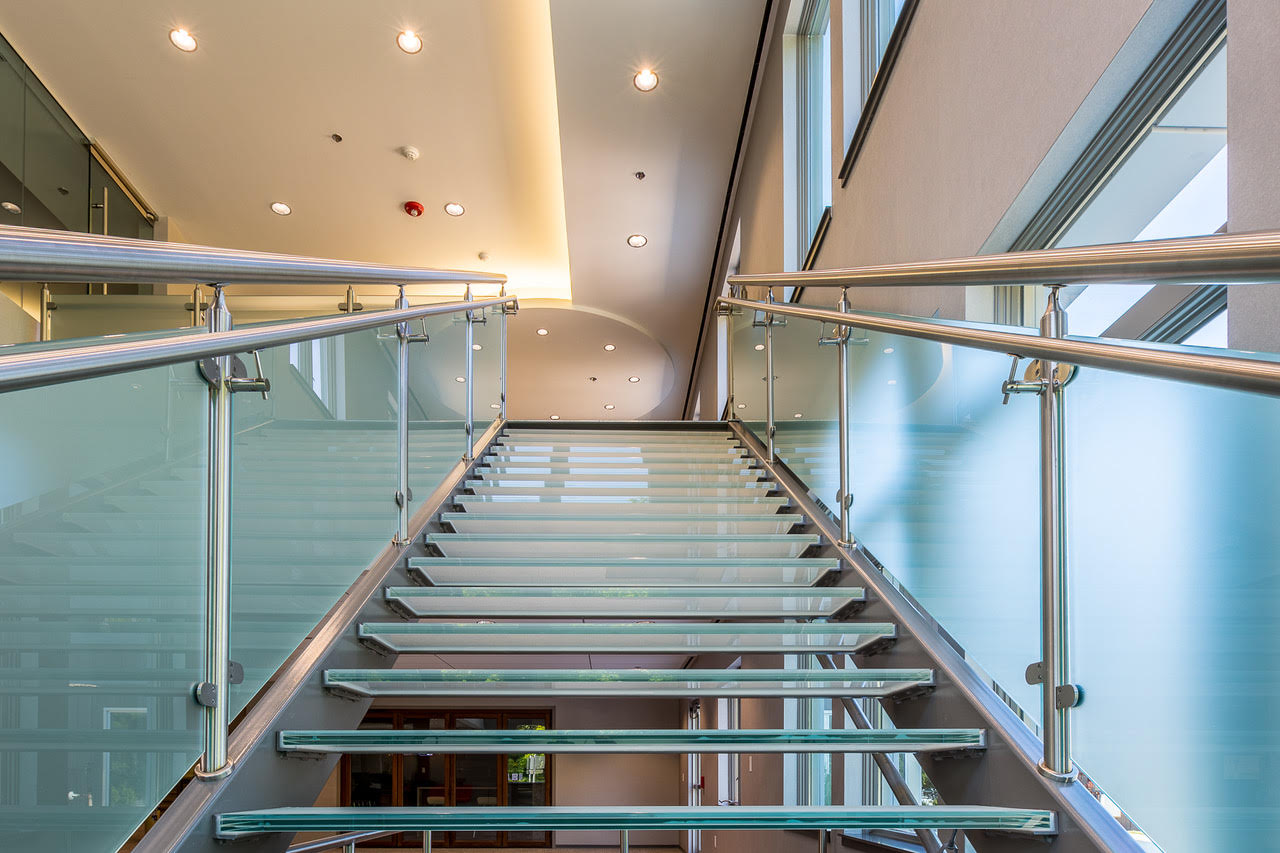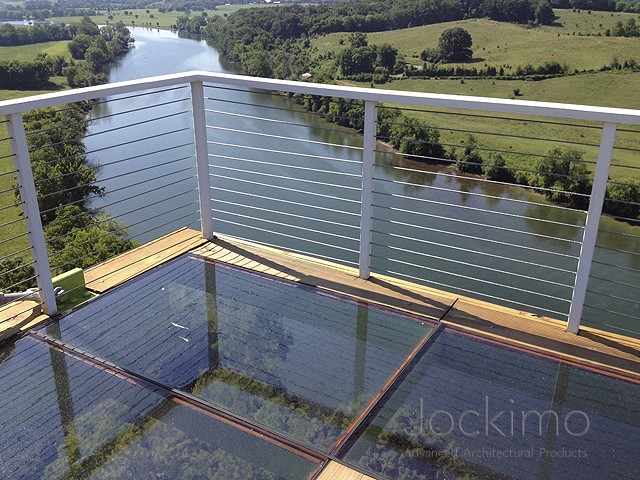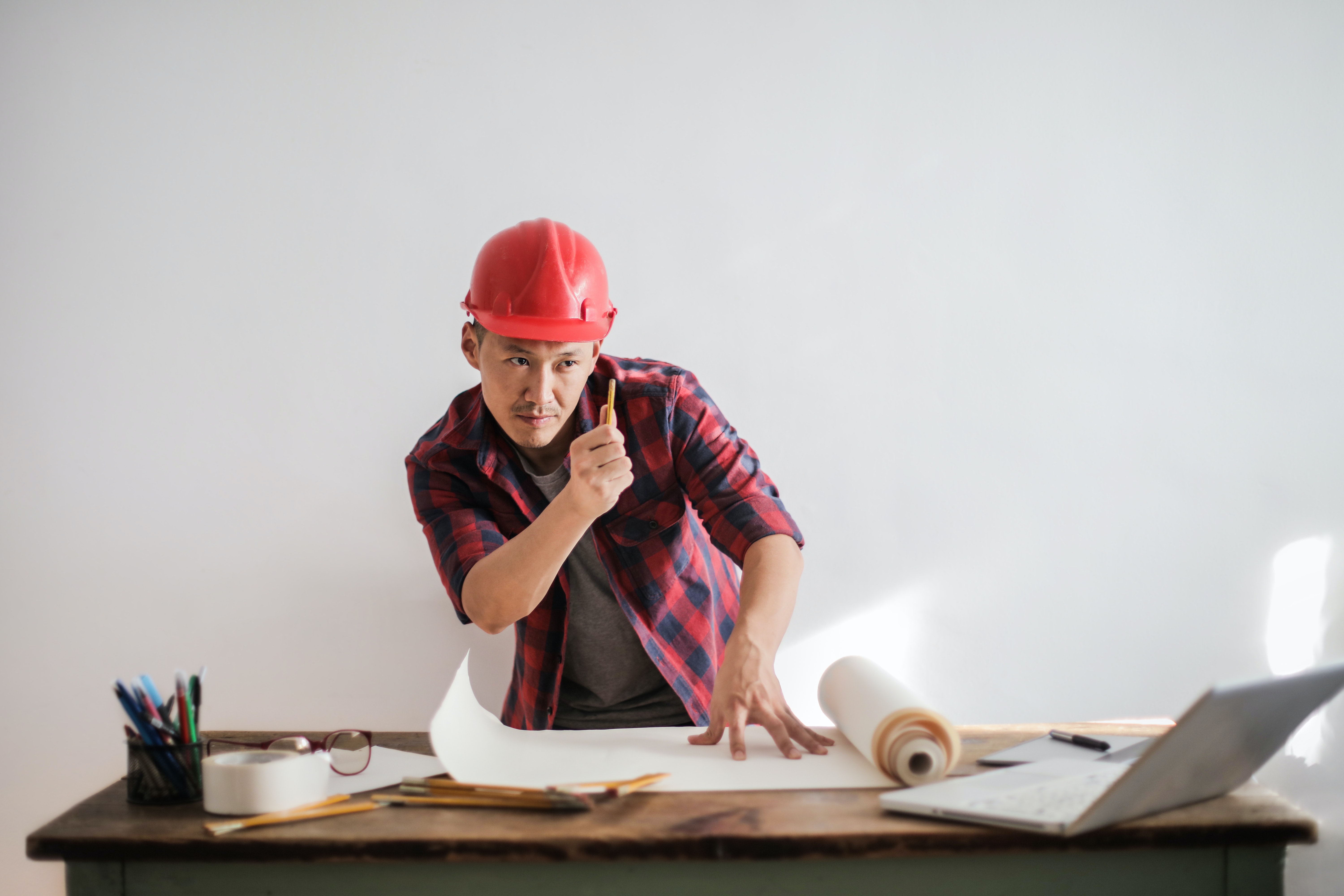5 Questions to Ask to Ensure Your Glass Flooring Is Safe
- Details
This Is a Must-Have Discussion with Your Glass Flooring Manufacturer
Glass flooring is stunning, but not all glass manufacturers are created equal. When it’s designed, manufactured, and installed correctly, glass flooring is as safe as any other flooring product, but how can you ensure that safety? Here are five safety-related questions to ask your glass manufacturer before you agree to work with them.
5 Questions to Ask about How Your Glass Flooring Is Manufactured
-
Do you use antislip glass on your glass flooring and stair treads?

Untreated glass can be slippery. This becomes an even bigger hazard when it’s wet. To ensure your glass flooring is fully safe for use in either interior or exterior settings, make sure your glass manufacturer has plans to use an antislip glass treatment.
There are several different methods for creating antislip glass, and each one offers different pros and cons. To ensure you get the ideal option for your project, make sure to also ask these questions around slip-resistance techniques:
- Will this create a transparent or frosted glass appearance?
- Is this rated for interior or exterior use?
- What’s the expected life span of this antislip treatment?
-
Do you design your glass flooring with a failure redundancy?

When properly designed and manufactured, failure of a glass floor is very unlikely. However, because of the safety implications involved with glass flooring, you want to be sure your project is designed and built with a failure redundancy.
What does this mean?
In this system, every glass floor panel is designed using three separate pieces of glass. These are then “sandwiched” together. In the unlikely event one piece of that glass fails, the structure is engineered and manufactured to stay structurally intact.
Always ask your glass manufacturer about their failure redundancy considerations. If you’re not satisfied with the answer, move on to another potential manufacturer.
Ignoring this three-ply system creates a project that is potentially unsafe. It also makes the project noncompliant with the most up-to-date ASTM codes, which state a minimum of three glass pieces must be used in every glass flooring panel and glass stair tread.
-
Who’s involved in the design and manufacturing of my glass flooring?

Lots of different manufacturers have the equipment necessary to create glass flooring. Fewer companies have the experience, expertise, and processes to create stunning, durable, safe flooring.
One key component of this is making sure you know everyone who is involved in your glass flooring project.
Most notably, this should include an engineer with glass-specific experience. This person will be responsible for all calculations and designs that ensure the safety of your glass flooring project.
-
How thick will my glass floor be?

In most cases, a glass floor will be about 1 ¼” thick. (This is three lites of 3/8” glass together.) International building codes and glass flooring safety standards govern glass thickness.
Every project is different, though, and should have an engineer sign off on the specific design based on many factors:
- Whether the glass will be interior or exterior.
- The anticipated weight the glass must hold.
- Whether the project is for a private residence or a commercial space.
- The size, shape, and span of each individual glass panel.
- The support system designed to accompany the flooring.
-
As a glass manufacturer, what experience and expertise do you bring?

Tim Casey, founder and owner of Jockimo Architectural Glass Products, carrying glass (around 1977).
Not all glass manufacturers are the same. The equipment to create glass flooring and other architectural glass products is readily available. It’s up to you, as a consumer, to make sure you’re working with reputable, established, skilled professionals.
Always ask the glass manufacturer what his or her experience is in the field of glass. The manufacturer should be able to demonstrate not only years in the industry but a high level of specialized expertise.
Especially given the liability concerns around glass flooring, vetting your glass manufacturer is one of the best ways to ensure you end up with a safe, durable, stunning end product.
Are You Ready to Get an Estimate for Your Glass Flooring Project?
If you’re ready to start the process of designing your glass floor project, reach out to Jockimo today. With decades in the industry, we can put together an accurate estimate for your flooring and begin to discuss the details of what you’re looking to create.



